Florida Insurance for Veterinarian Offices
8:30am - 5:00pm Mon-Fri
Will Reply in 15min*
Top Recommended Business Insurance Policies

Index
Contact Us
Phone
Location
6900 Tavistock Lakes Blvd, Suite 400, Orlando FL 32827
The state of Florida has specific regulations regarding what types of insurance veterinarians must carry, and failure to comply with these laws could result in costly fines or other penalties. To ensure that your veterinary office is properly protected against liability and other potential risks, it’s important to understand exactly what type of insurance policies are required for vets in the Sunshine State.
On this page, we’ll cover the different kinds of insurance that veterinarians should have in order to remain compliant with Florida’s regulations. We'll also discuss some optional coverage options that can provide additional protection for your practice. With this reliable information at hand, you'll be able to make more informed decisions about which policies are necessary for your business's success.
Who Needs Veterinary Insurance Services?
In Florida, any clinical veterinarian or veterinary technician who works in a veterinary practice must carry their own individual liability insurance policy. This is to protect them from any potential claims for medical malpractice that may arise as a result of their work. All other employees working at the vet clinic, such as office staff and groomers, should also have some type of liability coverage.
Recommended Insurance Policies for Veterinary Practices in Florida
1) Professional Liability Insurance
Professional liability insurance, also known as malpractice insurance, is a must-have for any veterinary office in Florida. This type of coverage protects you and your practice from financial losses related to errors or negligence while caring for animals. In the event that someone brings a lawsuit against your business, professional liability insurance can provide legal representation and help you cover the cost of damages.
2) Property Insurance
Property insurance provides financial protection for any physical property that your practice owns, such as medical equipment, office furniture, and other fixtures. In the event of a covered loss due to fire or theft, this policy could cover some or all of the costs associated with replacing your damaged property.
3) Business Interruption Insurance
Business interruption insurance is designed to help you financially manage the impact of a covered disruption to your practice’s operations, such as a natural disaster or equipment malfunction. This policy can provide financial assistance for lost revenue due to the temporary closure of your business and other related costs.
4) Workers’ Compensation Insurance
Workers' compensation insurance is required for all businesses with employees in the state of Florida. This type of policy provides financial assistance and legal representation to employees who suffer an injury or illness while on the job. It can also help protect you from being sued by a disgruntled employee for a workplace-related issue.
5) Cyber Liability Insurance
As a veterinarian, you'll likely need to collect and store sensitive patient information in digital formats. Cyber liability insurance can provide financial assistance if your practice experiences a data breach or other cyber-related losses. This policy can help cover the cost of notifying affected individuals, restoring lost data, and any legal fees associated with the event.
6) Business Automobile Insurance
If you or any of your employees use a vehicle for business-related purposes, then the state of Florida requires you to carry automobile insurance. This type of coverage can help protect both your practice and those involved in an accident from financial losses related to property damage or medical expenses.
7) Commercial General Liability Insurance
Commercial general liability insurance provides financial protection from third-party claims related to injury or property damage. This policy can help you cover the cost of medical expenses, legal fees, and any settlements awarded in a lawsuit involving your business.
8) Product Liability Insurance
Product liability insurance is designed to protect your practice from financial losses related to the sale or administration of products. If one of your patients experiences an adverse reaction to a medication you’ve prescribed, this policy can help cover legal fees, settlements, and any other associated losses.
9) Animal Professional Liability Insurance
Animal professional liability insurance provides financial protection for veterinarians when they are caring for animals. This type of policy covers claims related to negligence, errors or omissions while providing care, and other types of complaints from pet owners.
10) Business Owners Policy (BOP)
A business owner's policy (BOP) is a package of coverage that combines a variety of policies into one. This type of policy can be tailored to meet the specific needs of your practice and can include liability, property, business interruption, and other types of coverage. A BOP can help you save money on insurance premiums while still providing comprehensive protection for your veterinary business.
11) Hired and Non-Owned Auto Liability Insurance
Hired and non-owned auto liability insurance provides protection in the event of a car accident involving one of your employees or volunteers while they are driving their own vehicle on business. This policy can cover medical costs, property damage, and other related expenses arising from the incident.
12) Employment Practices Liability Insurance (EPLI)
Employment practices liability insurance (EPLI) is designed to protect your practice from legal expenses related to claims of wrongful termination, discrimination, harassment, and other workplace-related issues. This type of policy can help cover the costs associated with any settlements or judgments awarded
Special Considerations When Choosing Florida Veterinary Insurance
When selecting the right insurance policies for your veterinary practice in Florida, there are several important factors to consider.
- Make sure you understand the scope of coverage: Vet insurance policies vary greatly in terms of scope and coverage. For example, some policies may only cover certain types of animals, while others may provide comprehensive coverage for a wider range of services. Make sure you read and understand all the details before making a decision.
- Consider your practice’s risk profile: Different practices have different levels of risk associated with them. For example, if you offer surgical procedures, then you may require additional coverage to protect against potential claims related to those services. It’s important to consider your practice’s individual risk profile when selecting a policy.
- Look for discounts: Many insurance companies offer special discounts or incentives, such as lower premiums or bundled packages that can help save money on your coverage. Vet insurance is no exception. Special vet coverage discounts are often available if you meet certain criteria, such as having a high-volume practice or utilizing electronic medical records software.
- Consider increasing your deductible: Increasing your deductible can help to lower the cost of insurance premiums. It’s important to consider what level of risk you are comfortable with and be aware that a higher deductible may require you to pay more out-of-pocket in the event of a claim.
- Read the policy documents carefully: When choosing a vet insurance policy, it’s important to read all the details and make sure you understand your coverage. Make sure that you are familiar with any exclusions or limitations on coverage as well as the carrier’s claims process.
- Ask your carrier questions: If you’re not sure about a certain clause or policy document, don’t be afraid to ask questions or reach out to your insurance agent for clarification. It’s important that you have a full understanding of what is and isn’t covered before signing any contract.
- Look for experience: Vet insurance is a specialized field, so it’s important to look for carriers that have experience and expertise in this area. Ask about their track record of covering vet claims and how quickly they’ve been able to settle them.
- Get multiple quotes: Shopping around can help you to find the best deal. Get multiple quotes from different carriers and compare coverage details, premiums, and other factors to determine which one is the right fit for your practice.
- Consider adding additional coverage: If your practice has unique risks or specific needs, consider adding additional policies or endorsements. For instance, if you specialize in exotic pets or provide in-home services, these types of activities may require additional coverage to protect yourself and your business.
- Review your policy regularly: Regulations change over time, as do industry standards and the risks associated with owning a veterinary practice. Make sure you review your policy annually to make sure it aligns with your current needs and regulations. Doing so will help to ensure you are adequately protected in the event of a claim.
How Much Does Veterinary Insurance Cost in Florida?
The cost of veterinary insurance can vary significantly depending on the type and scope of coverage you choose. Generally, you can expect to pay anywhere from a few hundred to several thousand dollars per year for your policy. The exact amount will depend on factors such as the size of your practice, the types of services offered, the number of animals you care for, and the level of coverage you select. Shop around to compare quotes from different carriers and make sure you understand all the details before making a decision.
Compare Florida Vet Insurance Plans
When shopping for vet insurance in Florida, it’s important to compare policies from different carriers and find the one that offers the best coverage for your needs.
Bellken Insurance Group has built a solid reputation offering high-quality vet insurance plans tailored to meet the unique needs of veterinary practices. Our experienced team will work with you to identify the best coverage options for your business and offer competitive premiums that are easy to manage.
We understand the importance of providing quality care for animals, so we strive to ensure our clients have a policy that can help them protect their businesses and patients. Contact us today to learn more about our Florida vet insurance plans and get a free quote.








